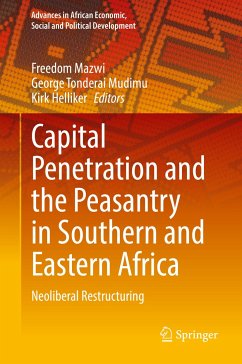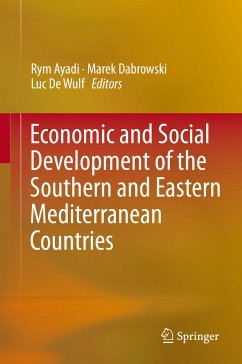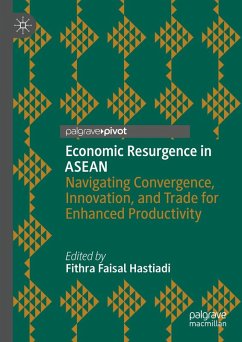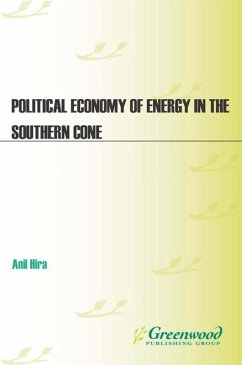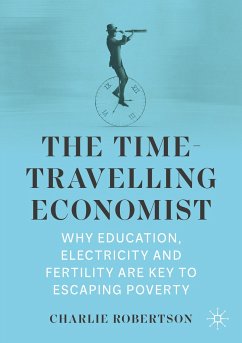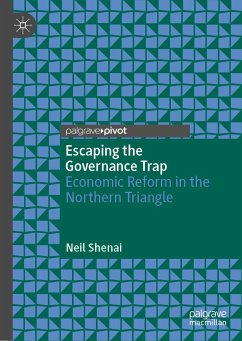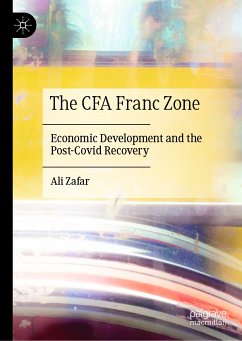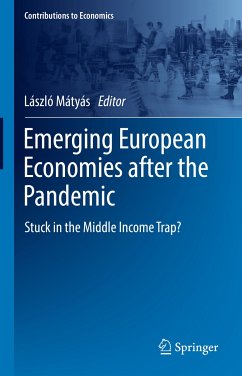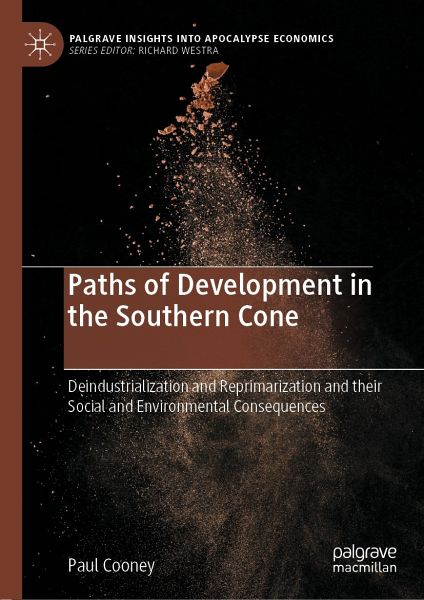
Paths of Development in the Southern Cone (eBook, PDF)
Deindustrialization and Reprimarization and their Social and Environmental Consequences
Versandkostenfrei!
Sofort per Download lieferbar
64,95 €
inkl. MwSt.
Weitere Ausgaben:

PAYBACK Punkte
32 °P sammeln!
This book analyzes the recent development paths pursued by progressivegovernments in Argentina and Brazil, namely deindustrialization andreprimarization, and the social and environmental consequences thereof. A keypart of understanding the trajectories in both Argentina and Brazil has been therole played by international institutions, especially the IMF and WTO, and also,the ever-growing hegemony of transnational corporations in the global economyand as a result, significantly limiting the possibilities of genuine development forlocal populations.Two major issues which extend beyond Latin Amer...
This book analyzes the recent development paths pursued by progressive
governments in Argentina and Brazil, namely deindustrialization and
reprimarization, and the social and environmental consequences thereof. A key
part of understanding the trajectories in both Argentina and Brazil has been the
role played by international institutions, especially the IMF and WTO, and also,
the ever-growing hegemony of transnational corporations in the global economy
and as a result, significantly limiting the possibilities of genuine development for
local populations.
Two major issues which extend beyond Latin America are: the expansion of
genetically modified crops and agrotoxics and the concern for global food security
and sovereignty; second, how reprimarization, associated with mining, cattle, soy
and petroleum, has been key in leading to the risk of desertification in the
Argentine pampas and also causing deforestation in the Amazon Rain forest,
described as the lungs of the planet, and thus has major implications for climate
change for the planet as a whole.
In addition, this book engages with a number of theoretical issues: development
and dependency in the periphery: neoliberal globalization, accumulation by
dispossession, ecological and environmental debates and the role of extractivism
and rent. This book is aimed for both academics, activists and those politically
motivated to analyze, understand and push for social change from a critical
perspective, and also, those interested in a radical analysis of paths of
development, dependency and socioenvironmental issues in Latin America
today.
governments in Argentina and Brazil, namely deindustrialization and
reprimarization, and the social and environmental consequences thereof. A key
part of understanding the trajectories in both Argentina and Brazil has been the
role played by international institutions, especially the IMF and WTO, and also,
the ever-growing hegemony of transnational corporations in the global economy
and as a result, significantly limiting the possibilities of genuine development for
local populations.
Two major issues which extend beyond Latin America are: the expansion of
genetically modified crops and agrotoxics and the concern for global food security
and sovereignty; second, how reprimarization, associated with mining, cattle, soy
and petroleum, has been key in leading to the risk of desertification in the
Argentine pampas and also causing deforestation in the Amazon Rain forest,
described as the lungs of the planet, and thus has major implications for climate
change for the planet as a whole.
In addition, this book engages with a number of theoretical issues: development
and dependency in the periphery: neoliberal globalization, accumulation by
dispossession, ecological and environmental debates and the role of extractivism
and rent. This book is aimed for both academics, activists and those politically
motivated to analyze, understand and push for social change from a critical
perspective, and also, those interested in a radical analysis of paths of
development, dependency and socioenvironmental issues in Latin America
today.
Dieser Download kann aus rechtlichen Gründen nur mit Rechnungsadresse in A, B, BG, CY, CZ, D, DK, EW, E, FIN, F, GR, HR, H, IRL, I, LT, L, LR, M, NL, PL, P, R, S, SLO, SK ausgeliefert werden.



